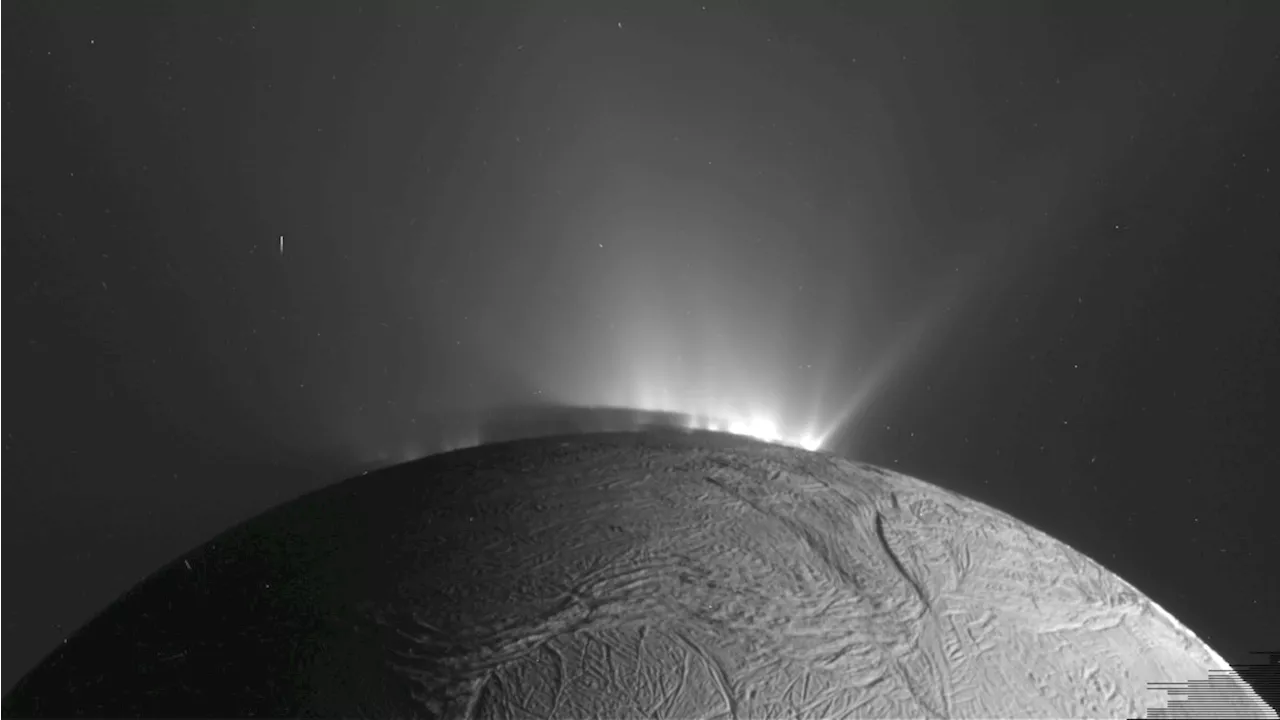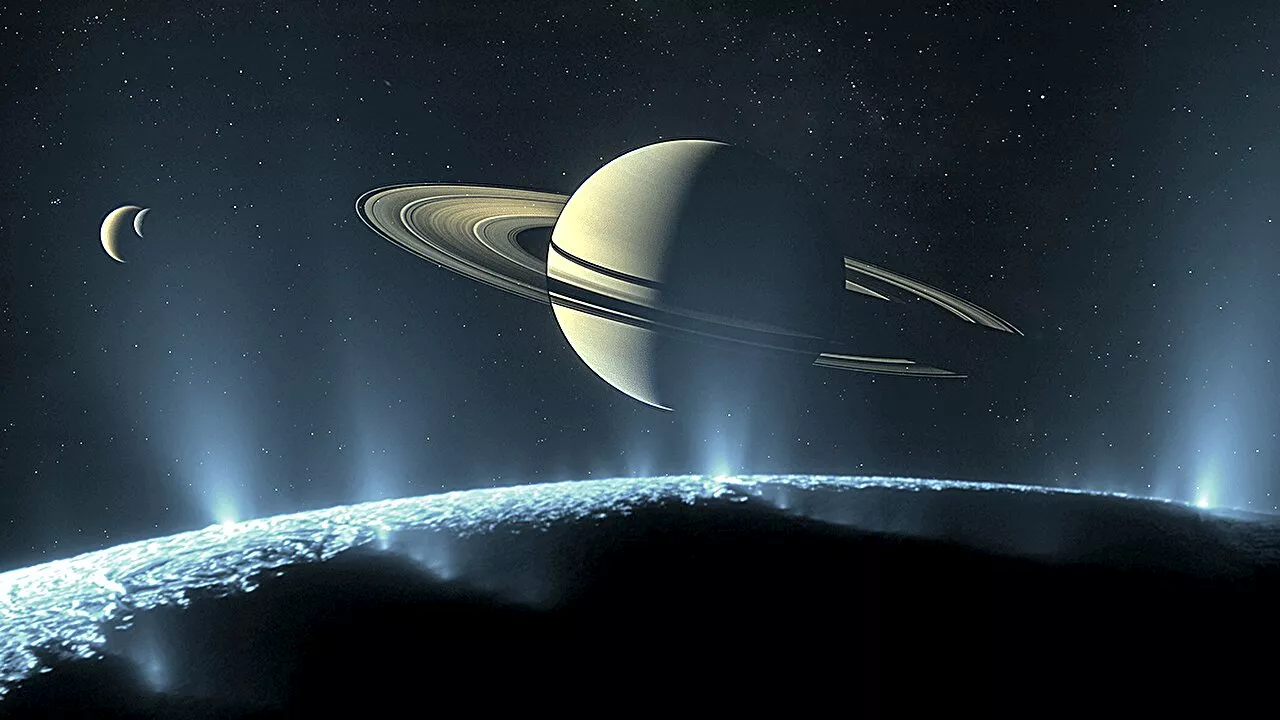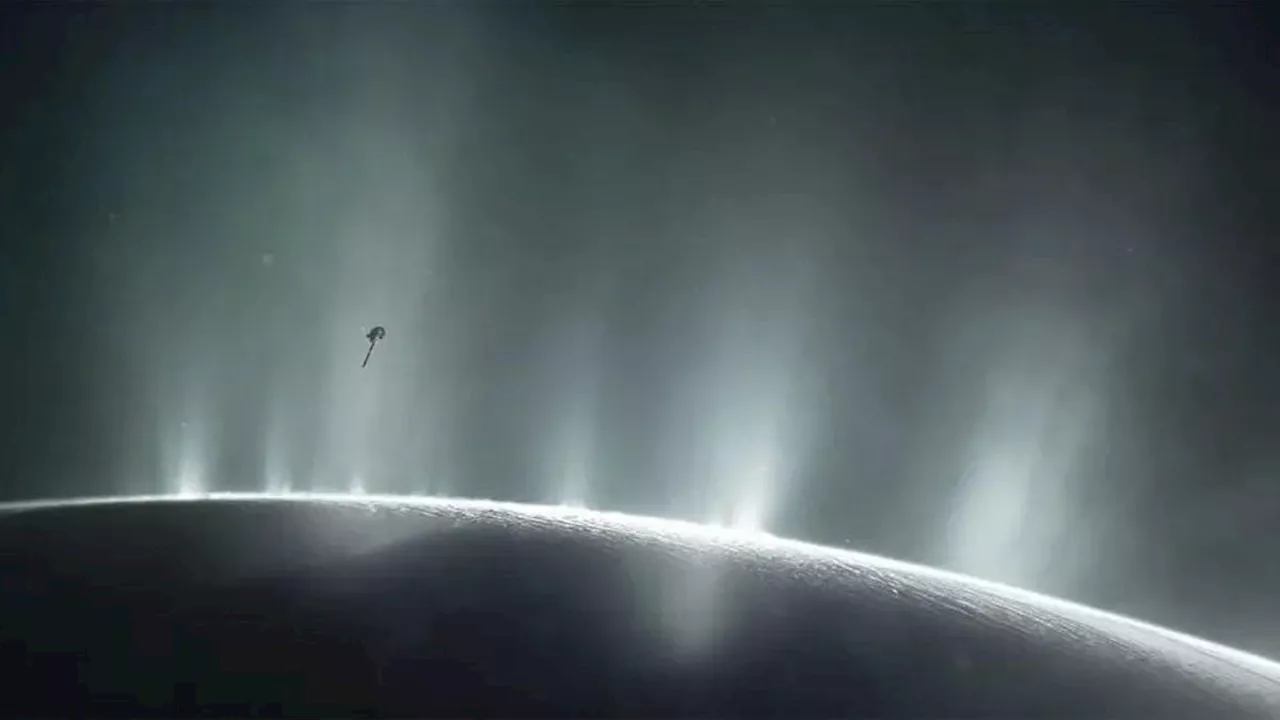In 2018, very large organic molecules were discovered in ice particles on Saturn's moon Enceladus. It is still unclear whether they indicate the existence of life or were created in some other way. A recent study could help to answer this question.
Discovery of biomarkers in space—conditions on Saturn's moon Enceladus simulated in the laboratory retrieved 13 May 2024 from https://phys.org/news/2024-05-discovery-biomarkers-space-conditions-saturn.html
This document is subject to copyright. Apart from any fair dealing for the purpose of private study or research, no part may be reproduced without the written permission. The content is provided for information purposes only.Jun 28, 2018Use this form if you have come across a typo, inaccuracy or would like to send an edit request for the content on this page. For general inquiries, please use ourThank you for taking time to provide your feedback to the editors.
Your feedback is important to us. However, we do not guarantee individual replies due to the high volume of messages.to let the recipient know who sent the email. Neither your address nor the recipient's address will be used for any other purpose. The information you enter will appear in your e-mail message and is not retained by Phys.org in any form.Get weekly and/or daily updates delivered to your inbox.
Physics News Science News Technology News Physics Materials Nanotech Technology Science
United States Latest News, United States Headlines
Similar News:You can also read news stories similar to this one that we have collected from other news sources.
 How 'tiger stripes' on Saturn's moon Enceladus hint at habitability: StudyResearchers likened the movement of Saturn's stripes to the San Andreas fault.
How 'tiger stripes' on Saturn's moon Enceladus hint at habitability: StudyResearchers likened the movement of Saturn's stripes to the San Andreas fault.
Read more »
 'Tiger stripes' on Saturn's moon Enceladus could reveal if its oceans are habitableRobert Lea is a science journalist in the U.K. whose articles have been published in Physics World, New Scientist, Astronomy Magazine, All About Space, Newsweek and ZME Science. He also writes about science communication for Elsevier and the European Journal of Physics. Rob holds a bachelor of science degree in physics and astronomy from the U.K.
'Tiger stripes' on Saturn's moon Enceladus could reveal if its oceans are habitableRobert Lea is a science journalist in the U.K. whose articles have been published in Physics World, New Scientist, Astronomy Magazine, All About Space, Newsweek and ZME Science. He also writes about science communication for Elsevier and the European Journal of Physics. Rob holds a bachelor of science degree in physics and astronomy from the U.K.
Read more »
 Saturn’s Ocean Moon Enceladus Is Able To Support LifeScientists could one day find traces of life on Enceladus, an ocean-covered moon orbiting Saturn.
Saturn’s Ocean Moon Enceladus Is Able To Support LifeScientists could one day find traces of life on Enceladus, an ocean-covered moon orbiting Saturn.
Read more »
 Looking for life on Enceladus: What questions should we ask?Does life exist beyond Earth? One of the most compelling places to consider this possibility is Enceladus, a moon of Saturn with a liquid water ocean encased in a frozen shell.
Looking for life on Enceladus: What questions should we ask?Does life exist beyond Earth? One of the most compelling places to consider this possibility is Enceladus, a moon of Saturn with a liquid water ocean encased in a frozen shell.
Read more »
 Enceladus's Fault Lines are Responsible for its PlumesStrike-slip faults like those on Earth are responsible for Enceladus' plumes, according to new research. Tidal forces open and close them.
Enceladus's Fault Lines are Responsible for its PlumesStrike-slip faults like those on Earth are responsible for Enceladus' plumes, according to new research. Tidal forces open and close them.
Read more »
 'Tiger Stripes' on Enceladus Linked to Moon's Spectacular GeysersSaturn's moon Enceladus is known for spewing jets of water-ice into space, with new research revealing a potential mechanism behind this phenomenon.
'Tiger Stripes' on Enceladus Linked to Moon's Spectacular GeysersSaturn's moon Enceladus is known for spewing jets of water-ice into space, with new research revealing a potential mechanism behind this phenomenon.
Read more »
